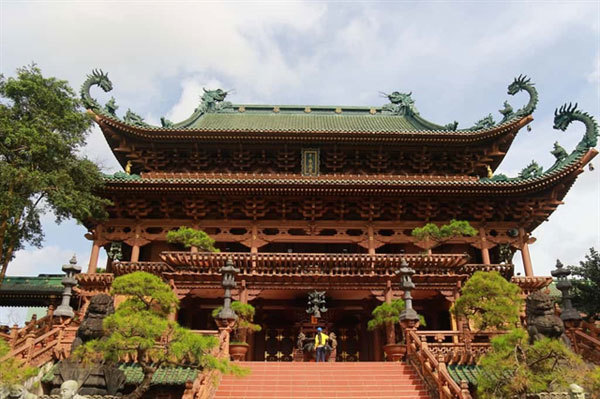 |
| The main hall of Minh Thanh Pagoda. — Photo phatgiao.org.vn |
I was lucky enough to visit this pagoda after a two-day assignment in Pleiku City.
The pagoda is located in the heart of the city on a gentle hill on Nguyen Viet Xuan Street. It has a unique, Japanese and Chinese-style architecture with exquisite carvings and a beautiful green campus, creating a peaceful space.
The pagoda was built in 1964 by Most Venerable Thich Giac Dao and has since been restored and become more beautiful and splendid.
From a distance, the pagoda looks like a miniature palace in the misty and mountainous city. I could easily see the curved roofs of the pagoda amidst the blue sky. The pagoda was embraced by a fanciful mist that made it feel as if I was in Japan.
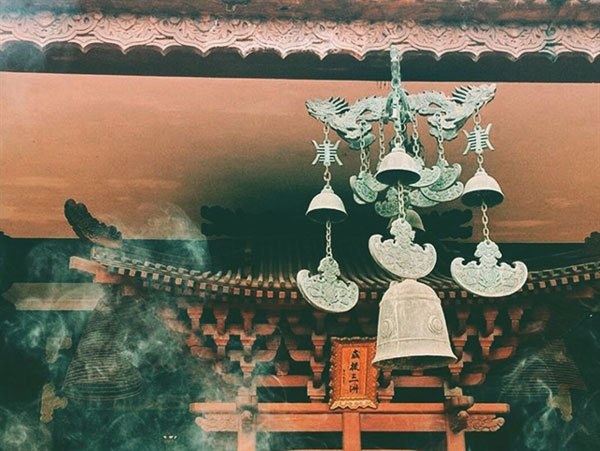 |
| Old wind chimes in Minh Thanh Pagoda. — Photo halotravel.vn |
The pagoda yard is quite large and decorated with stone statues and wooden materials carved sophisticatedly. It also has a very green space designed with trees to make the atmosphere fresh and pure. Around the lake, many small willow trees hang down.
In the small alleys of the pagoda, there are many mossy walls interlaced with creeping vegetation, evidence of the age of the temple.
Minh Thanh Pagoda has a total area of more than 20,000sq.m. The architecture of the pagoda is built in the form of a mandala which represents the universe and all the details carved here follow the foundation of Buddhist philosophy.
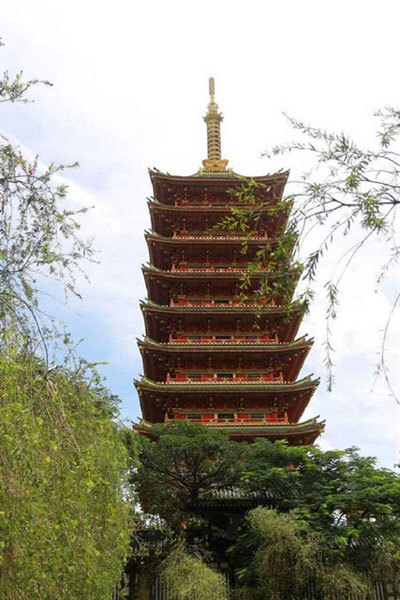 |
| The nine-storey tower in Minh Thanh Pagoda. — Photo 123didulich.com |
When arriving at the pagoda, I saw a nine-story relic tower, standing majestically amid the blue sky. The 72m-high tower is painted gold and is one of the tallest architectural works of Pleiku. The tower is built in the Japanese architectural style with a distinctive curved roof.
The pagoda's main hall can be seen after passing a three-entrance gate. Its ceiling was made of pơ mu, a type of wood which is well known in the local forests. The six entrance doors are made of wood with a thickness of 20cm and carved with six Bodhisattvas.
The main worshipping hall has two stories, Dai Hung Buu Dien and Dai Bi Dien. Inside the hall is a Buddhist altar which is 6m long and 1.2m high. In the four corners are four statues of the Bodhisattva of Compassion.
The left of the hall is the two-storey bell tower with two bells, in which the heaviest bell weighs 3 tonnes. The right side is a three-storey tower, Tu An. It is decorated with stylised dragons and lotus flowers. It was built very similarly to the Japanese temple architecture but still has a Vietnamese cultural identity.
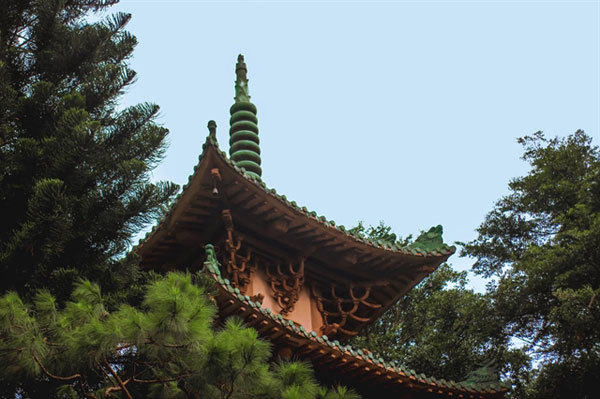 |
| The top of Tu An tower seen in the late afternoon. — Photo traveloka.com |
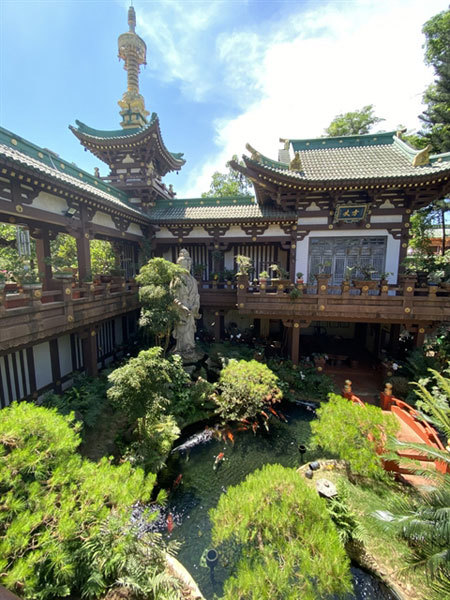 |
| A corner of Minh Thanh Pagoda. — Photo gody.vn |
The main hall’s walls are decorated with more than 3,000 statues, all embossed into the wall very elaborately.
There is a big statue of Amitabha in the middle of Lien Tri Lake in front of the pagoda. The stone statue is 7.5m high and weighs 40 tonnes. Next to it is the largest bronze incense burner in Vietnam, weighing 4 tonnes. After ascending 30 stone steps, I was surprised at the architectural beauty of the pagoda.
Strolling slowly under the trees, listening to the bell of the pagoda ring and the scent of frankincense spreading in the space, I felt lost in a fairyland. I took a deep breath and enjoyed some peace, quiet in the misty land of the mountainous city.
Source: VNS

Seven must-visit destinations of the Central Highlands region
Ta Dung lake, Dray Nur waterfall, the Coffee museum, and Bien Ho Che, also known as Tea lake, are among the most popular destinations for visitors to enjoy when taking a trip to the Central Highlands region.

Buu Minh pagoda – Where ancient meets modern
Located in the central highlands province of Gia Lai, Buu Minh pagoda has become a popular destination among visitors.